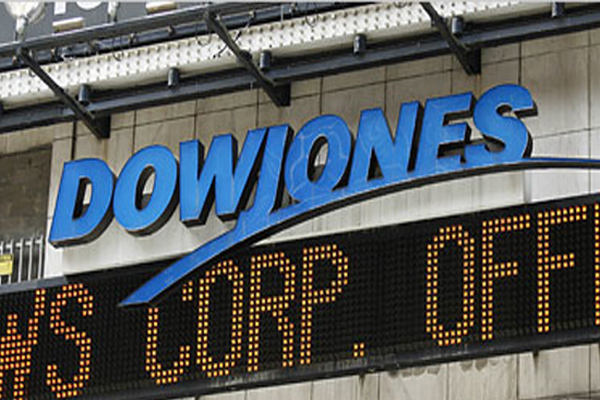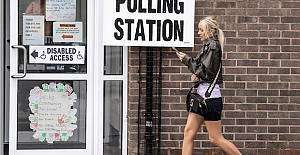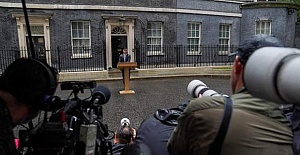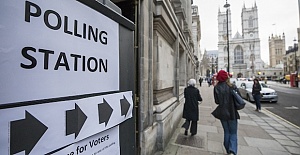The Wall Street index reached 14,259 in early trading, exceeding the previous record intra-day high of 14,198, set in October 2007. The recovery in the market suggests investors are regaining confidence in the US economy. That is despite the ongoing fiscal crisis in Washington. The Dow has more than doubled in value since it plummeted to less than 6,550 points in the depth of the crisis in March 2009. Investors were encouraged by data released on Tuesday suggesting the US's non-manufacturing industries, which account for about 90% of the economy, continued to expand last months. The Institute for Supply Management said its services index rose to 56 in February from 55.2 in January - its highest level in a year. More broadly investors have been encouraged by signs of recovery in the US housing market in recent months, and a return of consumer confidence. "Key data is turning supportive. Companies are ready to re-invest and grow profitably. With luck, we will see a recovery take hold in the second half of the year," said Paul Atkinson, head of North American equities at Aberdeen Asset Management. Other US indexes have also rallied in recent months.
The S&P 500 index - a broader index of US shares that is closely watched in the market - has risen by 125% since 2009, reaching 1,538 on Tuesday, but remains some way short of its pre-crisis high of 1,576.
US consumer confidence rebounded unexpectedly in February, while data suggesting strong sales of new homes has been particularly encouraging, as housing construction has typically played a leading role in past US recoveries.
QE staying
There are also signs big businesses are beginning to invest in capital spending rather than build up their cash piles, and are hiring more staff.
Analysts also say the commitment of central banks to quantitative easing (QE) and low interest rates has helped create optimism among investors, and made stocks and shares more attractive than bonds.
On Monday the vice chairman of the US Federal Reserve, Janet Yellen, said the central bank should press on with its QE programme, in which it spends $85bn (£56bn) a month on buying bonds.
Its actions have outweighed concerns over the continued US fiscal crisis in Washington, where President Barack Obama has warned that "sequester" budget cuts will harm the economy.
Some investors also warn that the US recovery remains sluggish. The economy grew at an annualised rate of just 0.1% in the last three months of 2012, data published last week showed.
"What happens when this [QE programme] kind of evaporates or goes away, that's the major question in the back of my mind," said Anthony Conroy, head trader at brokerage BNY Convergex.
"But right now, the economy, the market, everything looks fairly healthy. Stocks still look fairly inexpensive."
Dow Jones share index hits new record
Dow Jones share index set a new all-time high on Tuesday, returning to levels not seen since before the global financial crisis.
05 Mart 2013 Salı 09:00
reads.




 Advice for Enfield residents ahead of the General Election
Advice for Enfield residents ahead of the General Election Sunak promises tax cuts, economic stability, Conservative Party election manifesto
Sunak promises tax cuts, economic stability, Conservative Party election manifesto Ertan Karpazli, an independent MP candidate for the Enfield North constituency
Ertan Karpazli, an independent MP candidate for the Enfield North constituency Rishi Sunak announces a general election in a statement outside Downing Street
Rishi Sunak announces a general election in a statement outside Downing Street Residents of Spanish island of Mallorca launch initiative to thank tourists amid protests over mass tourism
Residents of Spanish island of Mallorca launch initiative to thank tourists amid protests over mass tourism Srebrenica Remembered, Lessons for Justice and Peace! YEE London held a reflective event
Srebrenica Remembered, Lessons for Justice and Peace! YEE London held a reflective event British Premier Keir Starmer to reset UK-EU relations with high-profile meetings
British Premier Keir Starmer to reset UK-EU relations with high-profile meetings Voters head to polls for UK general election
Voters head to polls for UK general election The Swiss official will take charge of the match between Real Madrid and Atalanta in Warsaw
The Swiss official will take charge of the match between Real Madrid and Atalanta in Warsaw Applications are now open for Walking and Cycling Grants London until 9 September 2024
Applications are now open for Walking and Cycling Grants London until 9 September 2024  Two Circles also appointed as exclusive media sales agency for UEFA Women’s Champions League
Two Circles also appointed as exclusive media sales agency for UEFA Women’s Champions League  England manager Gareth Southgate has resigned two days after defeat by Spain
England manager Gareth Southgate has resigned two days after defeat by Spain Joyce and Snell's planning application gets stamp of approval
Joyce and Snell's planning application gets stamp of approval The amount of bounce back loans fully repaid is just %13
The amount of bounce back loans fully repaid is just %13 Petrol prices higher than they should be, says RAC
Petrol prices higher than they should be, says RAC UEFA and Mastercard renew UEFA Champions League partnership
UEFA and Mastercard renew UEFA Champions League partnership
















